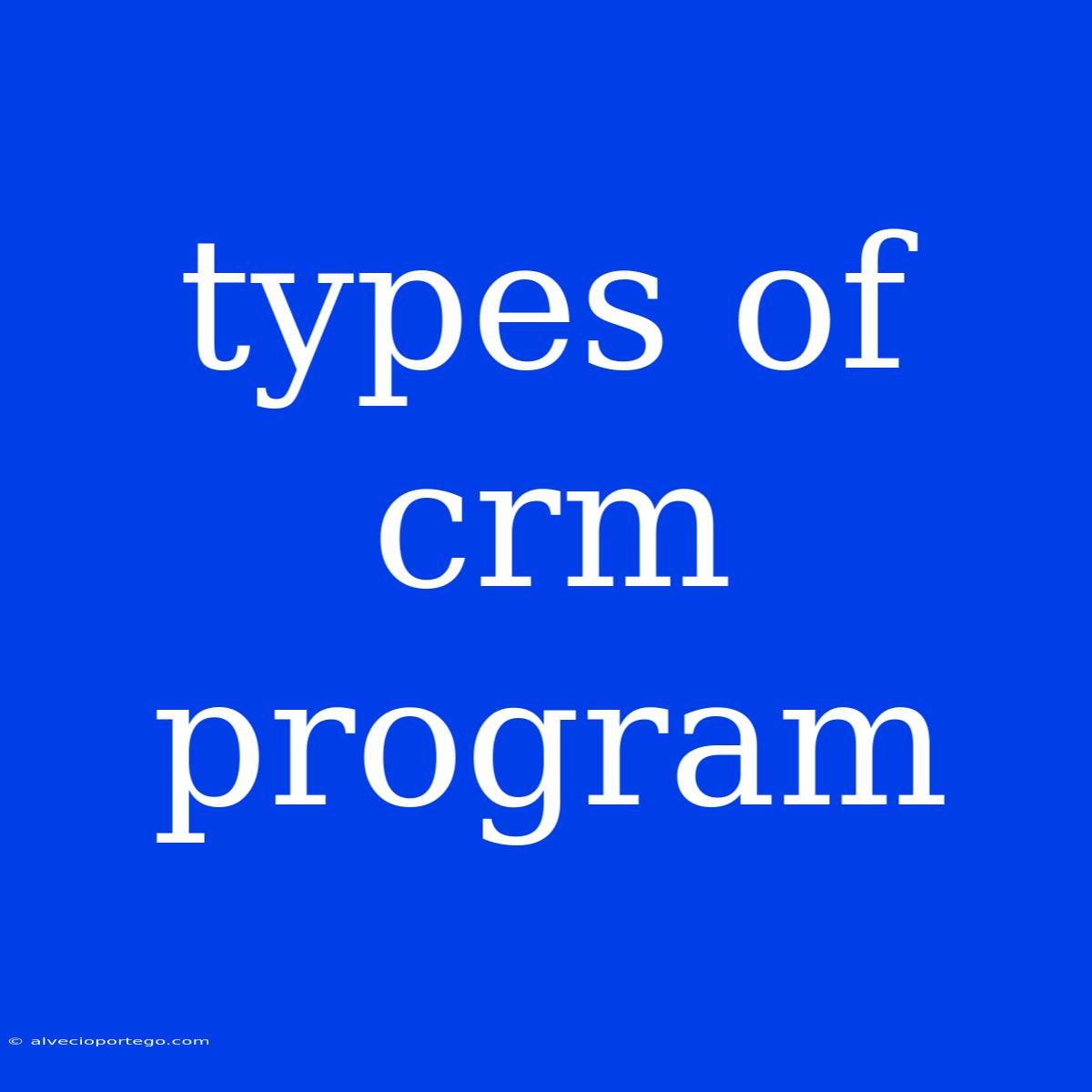Understanding the Different Types of CRM Programs
Customer Relationship Management (CRM) software has become a staple for businesses of all sizes, helping them manage interactions with customers and prospects. But with so many options available, choosing the right CRM program can be overwhelming. This article will guide you through different types of CRM programs based on their features and target audiences.
1. Operational CRM
Operational CRM focuses on automating and improving core business processes that directly interact with customers. These systems are designed to streamline workflows and enhance efficiency, leading to improved customer satisfaction.
Key features:
- Sales Force Automation (SFA): Tracks leads, opportunities, and sales pipelines, providing insights into customer behavior and helping close deals faster.
- Marketing Automation: Automates email campaigns, social media engagement, and other marketing activities to reach the right customers at the right time.
- Customer Service and Support: Provides tools for managing support tickets, resolving issues quickly, and improving customer satisfaction.
Examples:
- Salesforce
- Microsoft Dynamics 365
- Zoho CRM
- SAP CRM
2. Analytical CRM
Analytical CRM utilizes data to understand customer behavior and provide insights into their needs and preferences. This information is crucial for making data-driven decisions about marketing campaigns, product development, and customer service.
Key features:
- Data warehousing and analysis: Collects and analyzes customer data from various sources to identify trends and patterns.
- Business intelligence (BI) tools: Provides dashboards and reports that offer real-time insights into customer behavior and business performance.
- Predictive analytics: Uses algorithms to forecast future customer behavior and predict potential problems.
Examples:
- Tableau
- Qlik Sense
- Power BI
- Oracle Business Intelligence
3. Collaborative CRM
Collaborative CRM fosters collaboration among departments and teams within a company, ensuring all customer-facing teams have access to the same information and work together seamlessly.
Key features:
- Centralized customer database: Provides a single source of truth for all customer data, accessible by all relevant teams.
- Shared calendars and task management tools: Improves collaboration by allowing teams to coordinate activities and manage projects together.
- Communication tools: Enables teams to communicate effectively with each other and with customers through chat, email, and video conferencing.
Examples:
- Slack
- Microsoft Teams
- Asana
- Trello
4. Mobile CRM
Mobile CRM allows users to access and manage customer information and perform CRM tasks from their smartphones or tablets. This is crucial for businesses that need to stay connected with customers on the go.
Key features:
- Mobile-friendly interface: Provides a user-friendly experience on smaller screens.
- Offline access: Allows users to access data even when they are not connected to the internet.
- Real-time notifications: Keeps users informed of important events and activities.
Examples:
- Salesforce Mobile
- Microsoft Dynamics 365 Mobile
- Zoho CRM Mobile
5. Social CRM
Social CRM leverages social media platforms to engage with customers, understand their opinions, and build stronger relationships.
Key features:
- Social listening tools: Monitor social media channels for mentions of your brand and industry.
- Social media engagement tools: Enable you to respond to customer inquiries and participate in conversations on social media.
- Customer service integration: Allows you to handle customer support inquiries directly through social media platforms.
Examples:
- Sprout Social
- Hootsuite
- Buffer
- Mention
Choosing the Right CRM Program
When selecting a CRM program, consider your business needs and budget. Here are some key factors to keep in mind:
- Size of your business: Small businesses may need a simpler and more affordable solution, while large enterprises may require more robust features and scalability.
- Industry: Different industries have different CRM needs. For example, a retail business may need a CRM with strong inventory management features, while a financial services company may require advanced compliance features.
- Specific features: Determine which features are essential for your business, such as sales force automation, marketing automation, or customer support.
- Integration with other systems: Ensure the CRM integrates with your existing systems, such as your website, email marketing platform, and accounting software.
By understanding the different types of CRM programs and carefully considering your business needs, you can choose the right solution to enhance your customer interactions and drive business growth.

